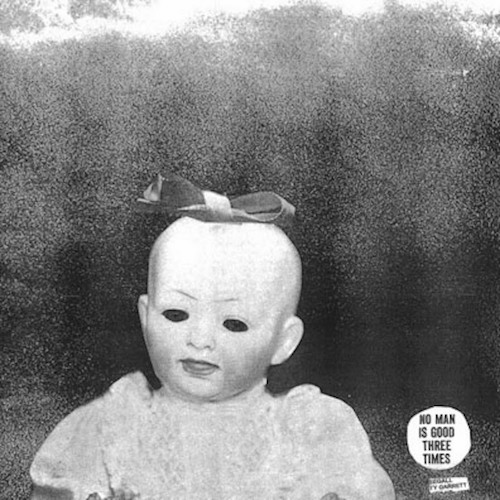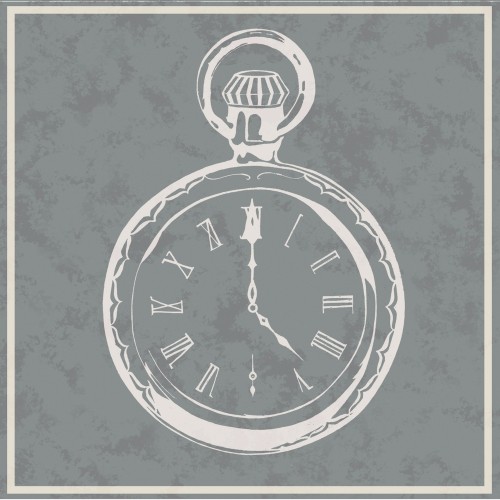 Release Date: September 27th, 2011
Release Date: September 27th, 2011





PREFACE: Consider this while reading; did Untitled ever really happen? Or was it a dream?
—-
When faced with the derision that comes with identifying as a “Blink-182 fan,” defenders have decent ammo for why they are one of the most underrated bands of the past 15 years. The bratty youth revolt they foretold is only now taking shape (Best Coast and Wavves both regularly cover, and sound like, Blink), their down-strumming suburban amateurishness is relatable and occasionally even poignant, possessing a manic energy screaming, “I may not be technically good at playing this guitar, but I care enough to make this mediocre playing sound great.” Blink-182 always cared, even if it was writing a stupid song about a first date.
Neighborhoods is nothing like that. Blink-182’s sixth studio album is cold, damp and sludgy—the kind of record Blink nay-sayers have been waiting for.
One of the main things that broke up Blink-182 was Tom DeLonge’s stubborn desire to record only in his house, effectively splitting the band and crippling the creative writing process for their records. As if it weren’t evident on even a glancing listen, Neighborhoods was recorded this way. DeLonge recorded his parts in his house, and Mark Hoppus and Travis Barker recorded in a studio separately. While the band toured together, rekindling a companionship with their fans and with one another, their recording process drove their upcoming record to its logical end: the worst Blink-182 record since Cheshire Cat, a disjointed effort bearing no resemblance to the creative fruit created in the height of Blink’s greatness (2001-03).
Nothing has been made of the tragic loss of Blink production guru Jerry Finn, although much should be made of it, given the production sounds of Neighborhoods. Compressed to immeasurable levels, volume turned up to mask a lack of dynamism, the album is a gigantic stadium riff played without nuance. There are no more inventive production cues or ideas (with the exception of the flange-drum riff in “Wishing Well”).
But then again, the production matches the emotional weight put into it. While the lyrics trend darker (“death” is sung in at least half of the songs), DeLonge’s voice carries none of the urgency he imbued into his former Blink work, or even the best days of his Angels and Airwaves side project. (This is saying nothing of the fact that DeLonge’s voice now most closely resembles a frog.) Hoppus seems more on his emotional game than DeLonge, but even his delivery recalls Rancid’s later days: a mindless song factory to recall former glories. Hoppus is responsible for the albums two best songs, but even they don’t stack up against any of Blink’s back-catalog. They’re +44 b-sides, and they sound like it. It doesn’t matter that +44 was the most propulsive of Blink’s side projects. +44 was never Blink-182, and it shouldn’t be now.
The usual Blink aggression has all but vanished, as well. Most of the songs most closely resemble miserable AVA album I-Empire, simply because DeLonge is commanding the proceedings with stadium, sweeping riffs that are more lifeless than marshaling. Even the mildly innocuous “Kaleidoscope” gets mangled by a Creed-worthy chug of a chorus. There are myriad redeemable moments (the bridge of “After Midnight,” or the angelic way DeLonge and Hoppus’ voices harmonize), and even a song that sounds like energetic Blink (“MH 4.18.2011”). However, every acceptable—not great by any means—point is swathed by minutes of mediocrity of pointlessness (the ugly synths that seem to be all over the place). DeLonge and Hoppus rarely align on any song, and every effort carries overt signs of what the other put into it. Nothing meshes together. For the first time in Blink-182’s history, the sum of its parts doesn’t amount to anything whole.
The record’s fragments are more damning when viewed in a larger context; Neighborhoods can’t really be called a Blink-182 album. It’s certainly an album by Mark, Tom and Travis, but that’s not the point. Neighborhoods sounds like the work of three individuals forced to do a record because the reunion dictates it. It doesn’t sound like a band pushing themselves to get past their limitations to reach something beautiful, something Blink-182 have always been incredibly gifted at doing. As the album closes with “Love Is Dangerous” (quite easily the worst song any member of the band, together or separate, has ever composed), Neighborhoods just leaves. It’s not a travesty, leaving the listener in a rage. It just is. A misstep of an album made by three talented artists who should’ve thought a bit more about what made them the great band they once were.
Blink-182 – Neighborhoods (deluxe edition) tracklist:
- “Ghost on the Dance Floor”
- “Natives”
- “Up All Night”
- “After Midnight”
- “Snake Charmer”
- “Hearts All Gone (Interlude)”
- “Hearts All Gone”
- “Wishing Well”
- “Kaleidoscope”
- “This Is My Home”
- “MH 4.18.2011”
- “Love Is Dangerous”
- “Fighting the Gravity”
- “Even If She Falls”


